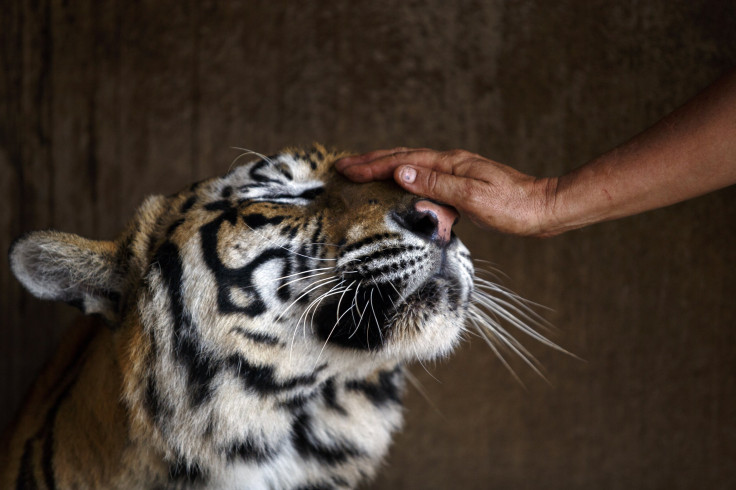Pets Around The World: United Arab Emirates Bans Keeping Wild Animals Like Tigers, Lions, Cheetahs As Pets

The United Arab Emirates, where owning exotic wild animals is considered a status symbol by some, has banned keeping animals like lions, tigers and cheetahs as pets.
According to the Middle Eastern country’s new laws, only zoos, wildlife parks, circuses, breeding and research centers are allowed to legally keep exotic animals, Gulf News reported Tuesday. The public is being urged to report instances of wild animals being kept as pets for the authorities to crackdown on the illegal activity.
A wild animal being taken out in a public setting is now reportedly punishable with a jail term of up to six months and a fine of up to 500,000 UAE dirhams ($187,000), while those who use animals to terrorize others can be jailed or fined up to 700,000 dirhams.
Concerns about the dangers posed by freely roaming animals led to the new law banning the dealing and ownership of “all types of wild and domesticated but dangerous animals.” The law, approved by the Emirates president in December, extends to banning pet apes and monkeys. It is based on the premise that the behavior of wild animals is unpredictable, and could cause harm to the public.
Wild animals being kept as pets is not an uncommon sight in the UAE and people often post videos and photos of tigers, lions and cheetahs in some Middle Eastern countries. In the past, pictures featuring lions in the back of cars, and a video of five tigers on a beach in Dubai have emerged on social media.
The law, however, also extends to dog owners, who are now required to obtain permits and keep their pets on the leash while in public areas, BBC reported. A fine of up to 100,000 dirhams can be imposed on those who fail to acquire the license — for which they have until mid-June — or those who fail to vaccinate their dogs against dangerous diseases.
© Copyright IBTimes 2024. All rights reserved.












